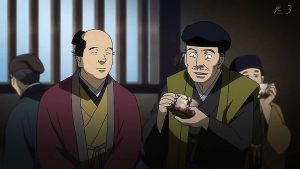 As wonderful a series as this is, it can sometimes be a bit of a struggle to keep up with the huge cast of relevant characters. Especially when events (like the start of a new season) cause me to skip a week between viewings. An episode like this one is a case in point, as it largely focuses on figures who, while crucial in Japanese history, have been mostly off-screen in Hyouge Mono. I’m not sure I’ve ever used Google more for a show than I do for this one.
As wonderful a series as this is, it can sometimes be a bit of a struggle to keep up with the huge cast of relevant characters. Especially when events (like the start of a new season) cause me to skip a week between viewings. An episode like this one is a case in point, as it largely focuses on figures who, while crucial in Japanese history, have been mostly off-screen in Hyouge Mono. I’m not sure I’ve ever used Google more for a show than I do for this one.
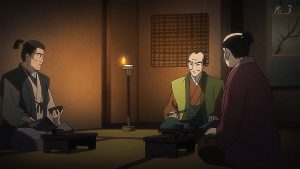 Tokugawa Ieyasu is easy to remember of course, and he’s busy turning the swamps of Kanto into his future “city of justice” Edo. Tokugawa also spends a day working on the building site, which he seems to quite enjoy even as he’s clearly doing it for show. Tokugawa is quite removed from the increasingly cutthroat aestheto-political machinations in the capital, and there’s no small irony in the fact that Hideyoshi, in sending a rival he feared to a remote and desolate part of the country, ended up doing him a huge favor.
Tokugawa Ieyasu is easy to remember of course, and he’s busy turning the swamps of Kanto into his future “city of justice” Edo. Tokugawa also spends a day working on the building site, which he seems to quite enjoy even as he’s clearly doing it for show. Tokugawa is quite removed from the increasingly cutthroat aestheto-political machinations in the capital, and there’s no small irony in the fact that Hideyoshi, in sending a rival he feared to a remote and desolate part of the country, ended up doing him a huge favor.
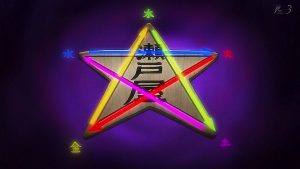 Kiyomasu Katou is likewise working on his own “greatest castle in the land”, in his fiefdom of Nagoya. Kiyomasa hasn’t turned up much but he’s always a riot when he does. Hyouge Mono cast former professional boxer Gushiken Youkou for the role, and it really paid off – he brings a unique if very unpolished energy to Kiyomasa. Kiyomasa too is at remove from the dangerous backstabbing in Kyoto (he even declines Sen no Rikyu’s invitation to his last great tea ceremony despite being a huge admirer, on the grounds of needing to finish his castle) but Kiyomasa would go on to be a hugely important figure in the events of the next decade.
Kiyomasu Katou is likewise working on his own “greatest castle in the land”, in his fiefdom of Nagoya. Kiyomasa hasn’t turned up much but he’s always a riot when he does. Hyouge Mono cast former professional boxer Gushiken Youkou for the role, and it really paid off – he brings a unique if very unpolished energy to Kiyomasa. Kiyomasa too is at remove from the dangerous backstabbing in Kyoto (he even declines Sen no Rikyu’s invitation to his last great tea ceremony despite being a huge admirer, on the grounds of needing to finish his castle) but Kiyomasa would go on to be a hugely important figure in the events of the next decade.
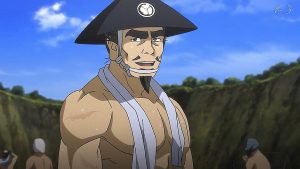 As for Sasuke, he’s having unexpected success with his tea bowls, which are stirring up quite the demand on Sanjo-dori. Still trying to follow Rikyu’s advice and find himself, pottery seems increasingly a vital component of Sasuke’s identity. Things are clearly very much at the snapping point between Rikyu and the Chief Advisor, neither one even seeming to make an attempt to hide their hostility. The tea ceremony in Rikyu’s two-tatami tearoom is incredibly tense, with poor Oda Nagamasu caught in-between. Nagamasu honestly just seems to want some peace and quiet but life (and Hideyoshi) are determined that he’s not going to get it.
As for Sasuke, he’s having unexpected success with his tea bowls, which are stirring up quite the demand on Sanjo-dori. Still trying to follow Rikyu’s advice and find himself, pottery seems increasingly a vital component of Sasuke’s identity. Things are clearly very much at the snapping point between Rikyu and the Chief Advisor, neither one even seeming to make an attempt to hide their hostility. The tea ceremony in Rikyu’s two-tatami tearoom is incredibly tense, with poor Oda Nagamasu caught in-between. Nagamasu honestly just seems to want some peace and quiet but life (and Hideyoshi) are determined that he’s not going to get it.
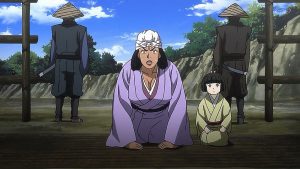 Finally, we have the death of Hidenaga. This is a crucial event in Sengoku history, as Hidenaga was one of the few people his half-brother truly trusted – and loved. We’re taught he died of illness, but Hyouge Mono once more applies dramatic license here, attributing at least the final demise to Kuroda Yoshitaka. Kuroda was not a man Hideyoshi trusted (or loved) in part because of the Monkey’s leeriness over Kuroda’s great intelligence and ambition, but he did rely on him. Here, Kuroda seems to be in league with Rikyu (in real life they did become close, another reason for Hideyoshi’s mistrust), and this act of murder seems to have been committed on his behalf. Only four episodes remain, and the sorting hat is really making the rounds now.
Finally, we have the death of Hidenaga. This is a crucial event in Sengoku history, as Hidenaga was one of the few people his half-brother truly trusted – and loved. We’re taught he died of illness, but Hyouge Mono once more applies dramatic license here, attributing at least the final demise to Kuroda Yoshitaka. Kuroda was not a man Hideyoshi trusted (or loved) in part because of the Monkey’s leeriness over Kuroda’s great intelligence and ambition, but he did rely on him. Here, Kuroda seems to be in league with Rikyu (in real life they did become close, another reason for Hideyoshi’s mistrust), and this act of murder seems to have been committed on his behalf. Only four episodes remain, and the sorting hat is really making the rounds now.


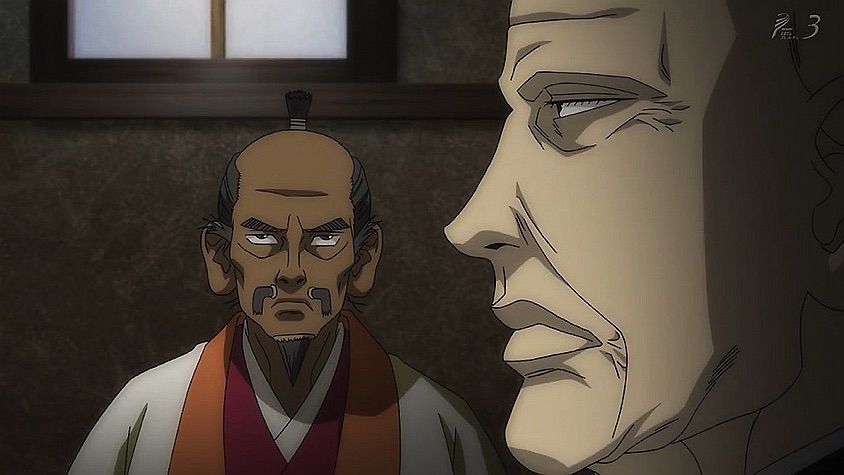
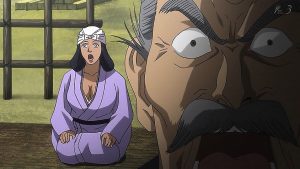
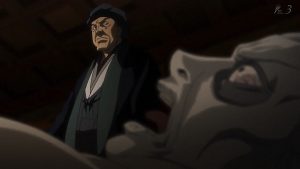
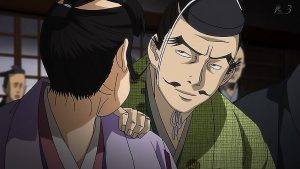
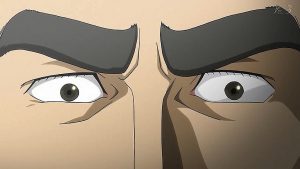
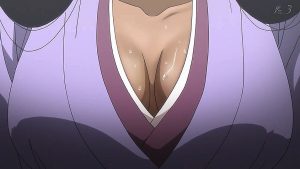
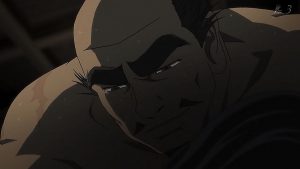
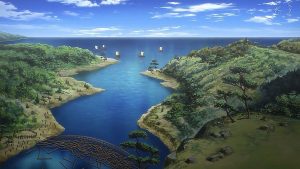
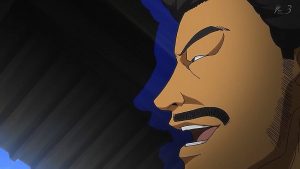
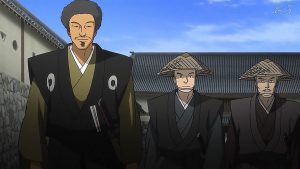
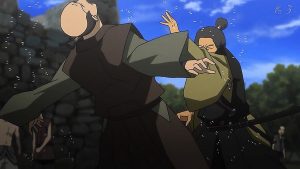
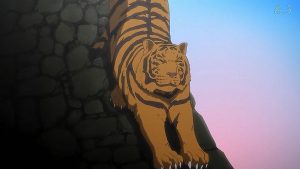
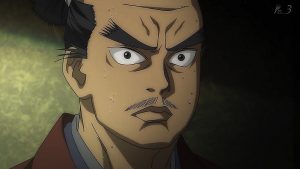
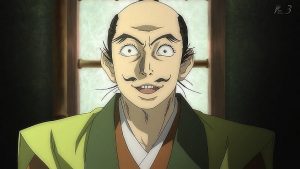
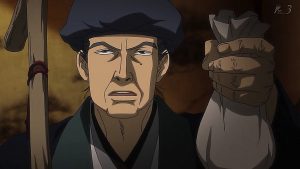
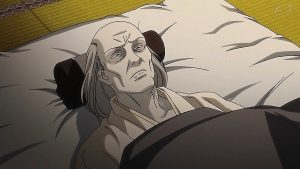
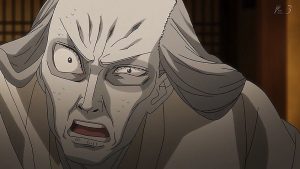
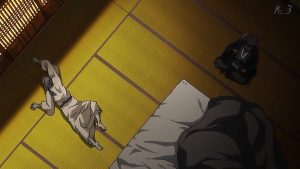
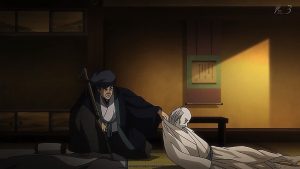
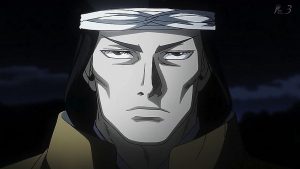
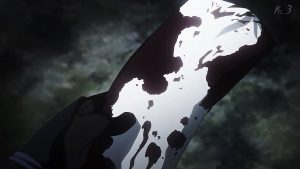
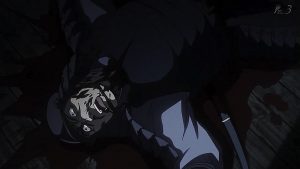
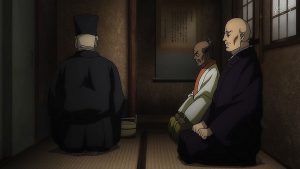
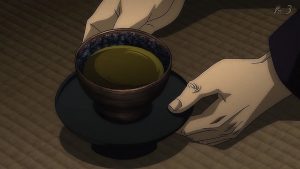
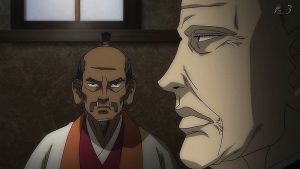
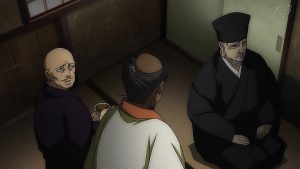
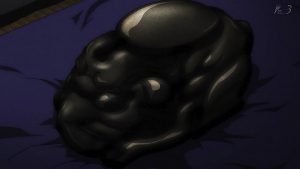
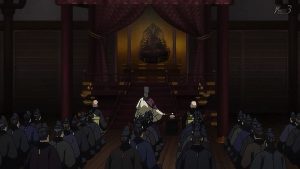
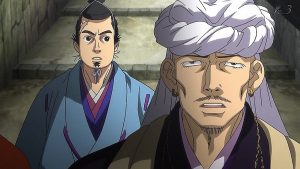
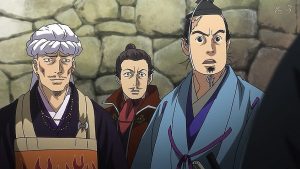
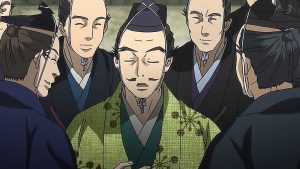
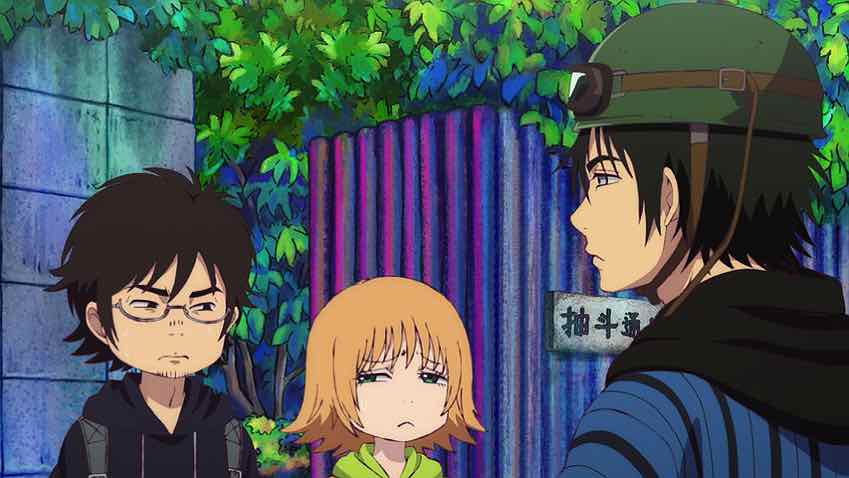
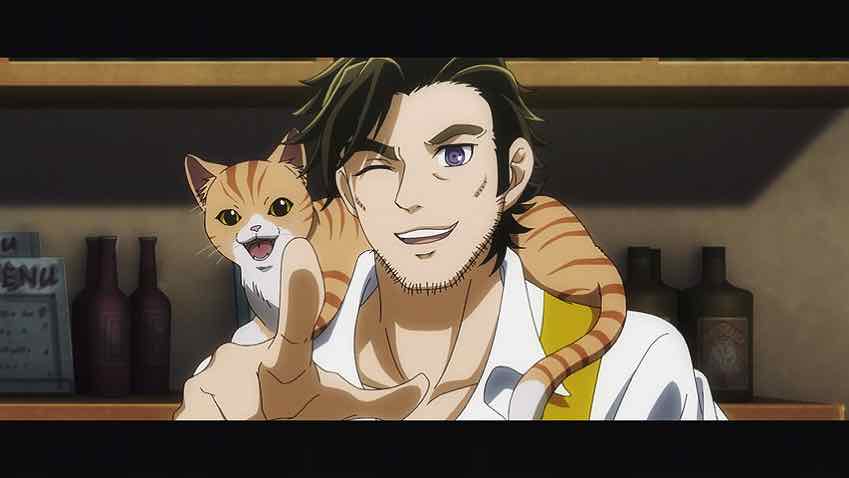
Derrick
January 17, 2021 at 5:24 pmYou can feel a sense of point of no return, and frankly I still feel Rikyu is too idealistic.
Guardian Enzo
January 17, 2021 at 6:52 pmIn what sense? He strikes me as a pretty cunning and practical guy in many respects, but after all, he devoted his entire life to aesthetics.